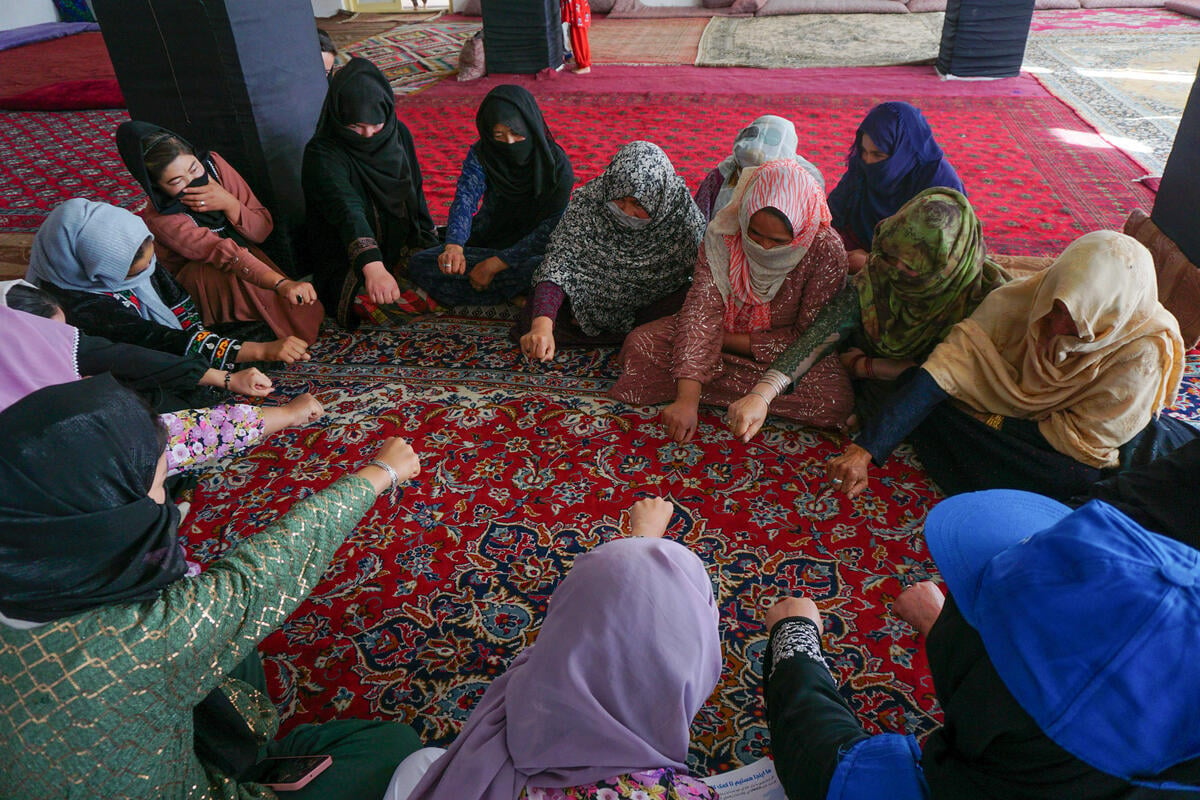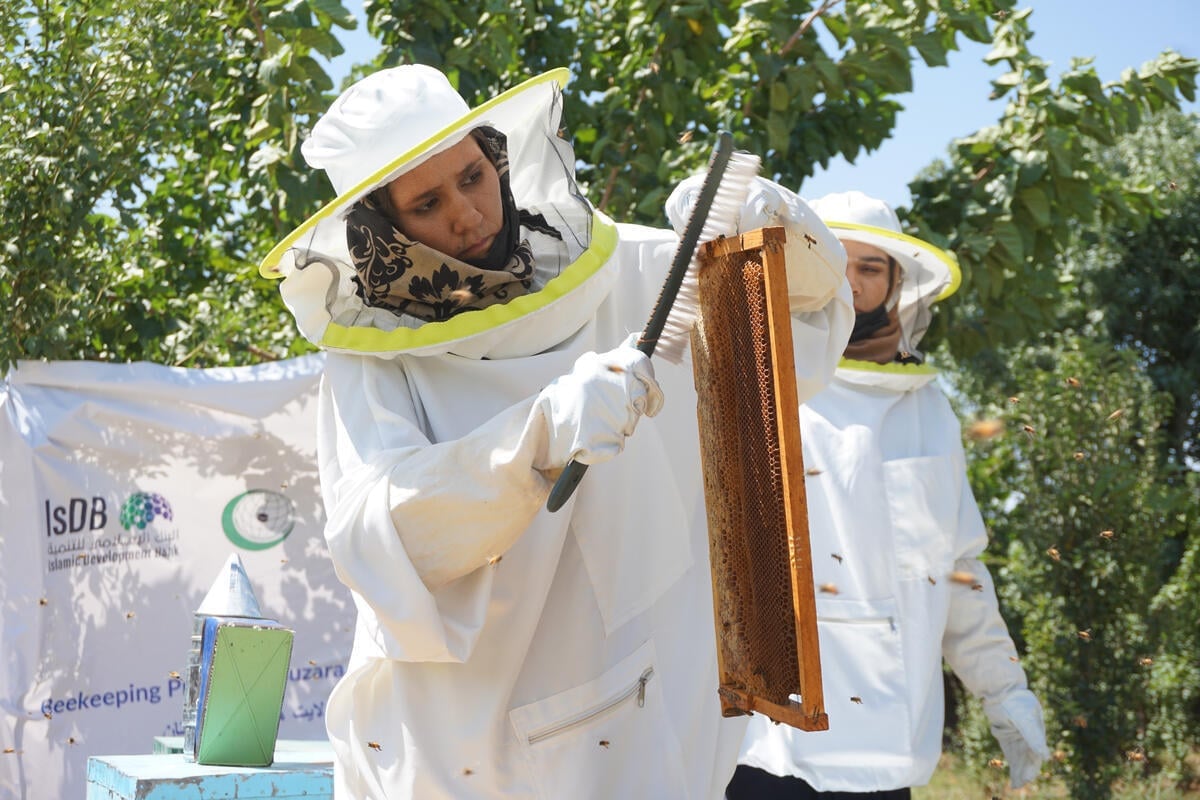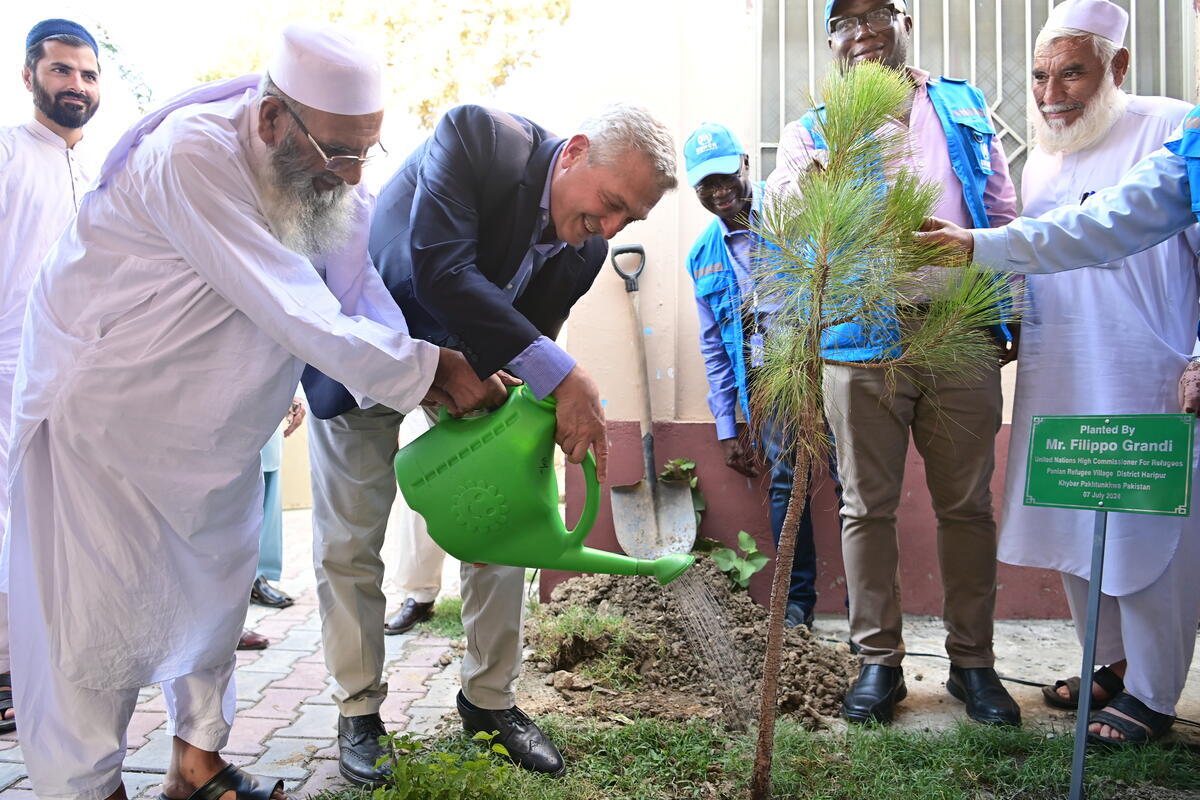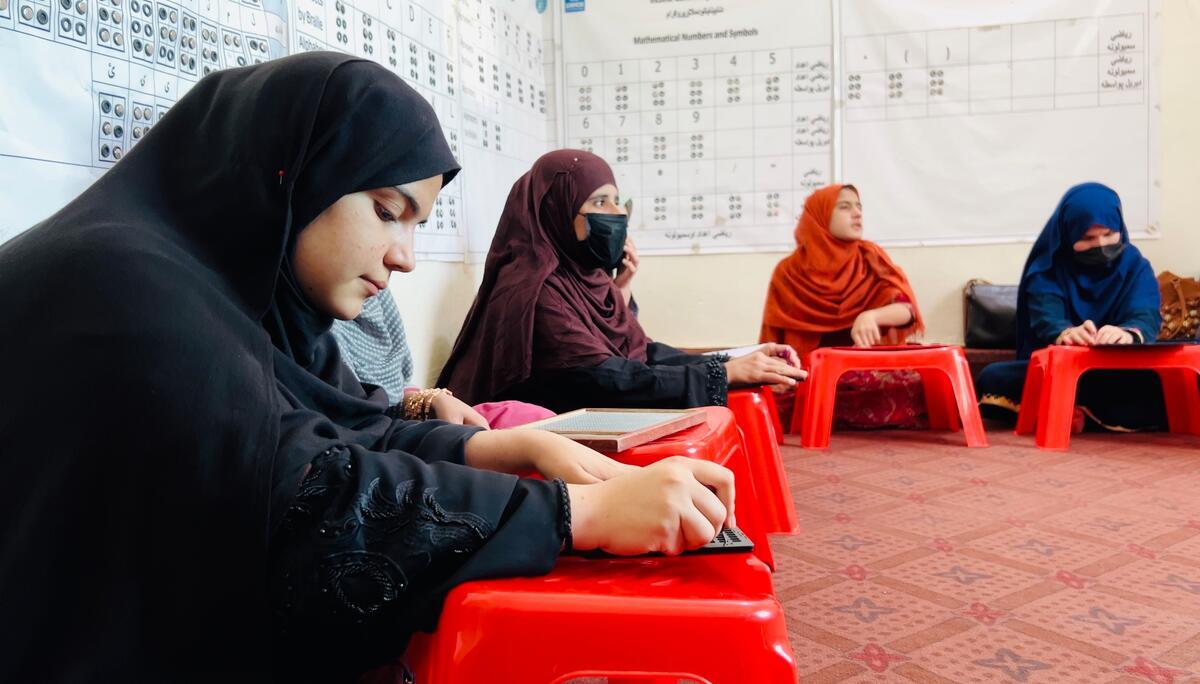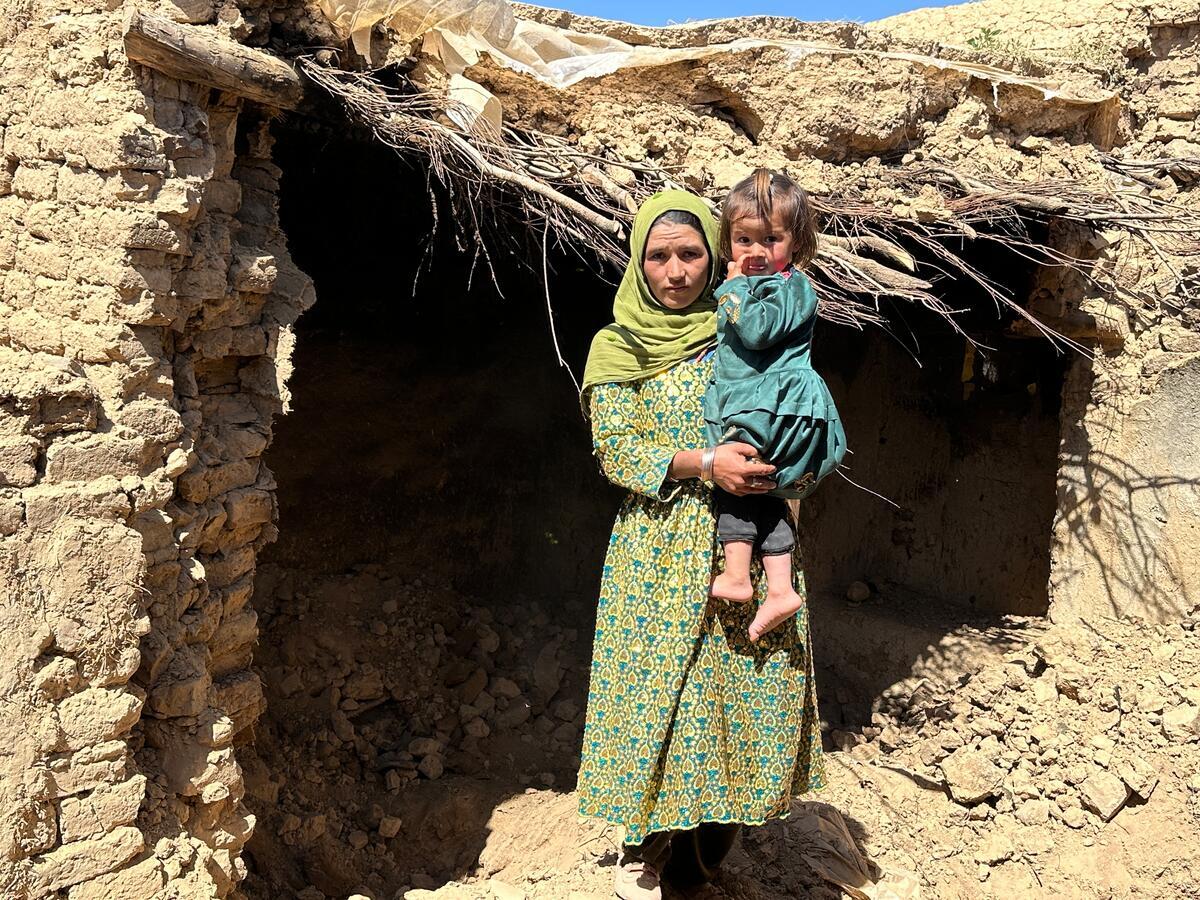Afghanistan: dramatic increase in numbers at Chaman border
Afghanistan: dramatic increase in numbers at Chaman border
UNHCR estimates there are now nearly 20,000 Afghans at the edge of the Killi Faizo transit camp at the Chaman border, Pakistan, waiting to be registered. This is a dramatic increase from the number that were there just a few days ago. Ten days ago we were seeing only about 5,000 persons waiting at the frontier. UNHCR staff at the Killi Faizo camp are registering about 400 families daily. The remaining thousands wait just outside for their turn, living under makeshift plastic shelters that stretch as far as the eye can see. We're providing them with WFP biscuits and water and blankets.
In southern Balochistan Province, UNHCR currently cares for another 144,000 people in nine camps and one transit area. This does not include the nearly 20,000 Afghans waiting to be registered and moved to one of our new camps.
So far this year, more than 50,000 Afghans have gone to Pakistan seeking help. The pace of this influx is truly alarming. The Afghans are also looking more and more destitute. What's more worrisome is that the new arrivals say that many more Afghans are behind them. UNHCR staff travelling between Kandahar and Spin Boldak report seeing people walking along the road from Kandahar to the Chaman border, or riding on tractors.
Many of the new arrivals are Kuchis, Afghan nomads, who say they've run out of food due to the unrelenting effects of the drought. Some ethnic Pashtuns among the new arrivals tell stories of being robbed and intimidated in mixed villages in the north, often at the instigation of local commanders, before deciding to seek safety elsewhere. Most of the Afghans in this group come from Jozjan, Faryab, and Badghis provinces. Some of the others say they left the makeshift displaced persons camps at Spin Boldak in southern Kandahar Province, where they say they didn't receive any assistance.
The Pakistani authorities have been very cooperative in allowing these Afghans to enter the country, but the pace of this movement points to the urgent need for more to be done inside Afghanistan - both to alleviate the affects of the drought, and to ensure that banditry and security are better controlled. Relief agencies plan to distribute fresh relief supplies in Spin Boldak's displaced persons camps this week - UNHCR plans to transfer supplies from our stockpile in Quetta to Kandahar for distribution inside Afghanistan.
To the north, in Pakistan's North West Frontier Province, UNHCR cares for more than 60,000 new Afghan refugees in six camps - mainly people transferred from the now-closed Jalozai camp and unregistered refugees being relocated from Peshawar.
We thus assist more than 204,000 Afghans in 16 sites in Pakistan's border belt with Afghanistan. In all, we estimate that more than 250,000 Afghans have arrived in Pakistan since last September.


